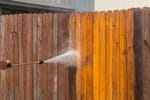Natural disasters, floods, and fires can cause extensive damage to homes.
When disaster strikes, restoring the house to its former condition can be challenging and costly.
Home damage restoration is a complex process that requires skill, expertise, and a substantial amount of financial investment.
The cost of restoring a house can vary depending on several factors.
This article discusses the top ten factors that impact the cost of home damage restoration.
1)) The Type of Damage
The type of harm done to your home is a significant factor that affects the cost of restoration.
For example, water damage may be less expensive to repair than fire damage because the latter often destroys structural materials, rendering them unusable.
Mold remediation may cost more and take longer than water damage restoration because of the complexity of the process.
2)) The Extent Of Damage
The extent of the damage to your property determines the cost of restoration.
Extensive damage that requires a significant amount of reconstruction, such as replacing drywall, roofing, and flooring, will cost more than minor damages.
The more severe the damage, the more time, labor, and materials are required, which will increase the overall cost of restoration.
3)) The Age Of The Property
The age of a house can also impact the cost of restoration.
Older homes often require specialized materials, which are more expensive to procure.
They may have outdated electrical or plumbing systems that may require significant repairs or replacement to meet current safety standards.
4)) The Location Of The Property
The location of your home is also an important factor that impacts restoration costs.
If your house is in a remote area, it may cost more to transport the necessary equipment and materials.
Similarly, if you live in an area that is prone to natural disasters such as hurricanes or flooding, your insurance premiums may be higher, which can increase the cost of restoration.
5)) Time Of Response
The faster your home damage restoration company can respond to your call, the lower your overall cost of restoration will be.
Delaying the restoration process can cause the damage to worsen, resulting in extensive repairs and, ultimately, higher costs.
Quick action can help to minimize the damage, so it's best to respond as soon as possible.
6)) Accessibility Of The Damage
The accessibility of the damage is also a significant factor that affects the cost of restoration.
Damage that is visible and easy to reach will cost less to repair than the damage that is hidden or difficult to access.
For instance, water damage behind walls may require extensive demolition to access, which can increase the cost of restoration significantly.
7)) The Quality Of Materials Used
The quality of materials used for restoration is also a determining factor in the cost of restoration.
High-quality materials may cost more, but they will likely last longer, making the restoration process less frequent.
Using high-quality materials can improve your home's value in the long run.
8)) Contractor's Expertise And Experience
The expertise and experience of the restoration contractors also impact the cost of restoration.
Hiring a seasoned contractor may result in higher labor costs, but it’s worth it because you are sure of getting quality repairs.
Inexperienced contractors may not do a perfect job, which may result in the need for repeat restoration.
9)) Permit Requirements
Permit requirements by local authorities for the reconstruction will also affect the cost of restoration.
For example, if you need a permit for some additions or rerouting of utilities, the cost of the permit and inspection fees will add to the cost of restoration.
10)) Insurance Coverages
Insurance coverage also impacts the cost of restoration.
Check your coverage policies to see what your insurance company will cover in case of damage.
This information will help you negotiate with the home damage restoration company and minimize out-of-pocket expenses.
Conclusion
Restoration costs can vary significantly depending on the type, extent, and age of the property damaged.
Location, accessibility, time of response, contractor’s expertise and experience, permit requirements, and type of materials used also have an impact.
As a homeowner, you can minimize the cost of restoration by responding early and consulting with an experienced home damage restoration company.
A quality company like Restore Pro offers free estimates, giving you a chance to manage your budget and make informed decisions.
Download Our Free E-book!








